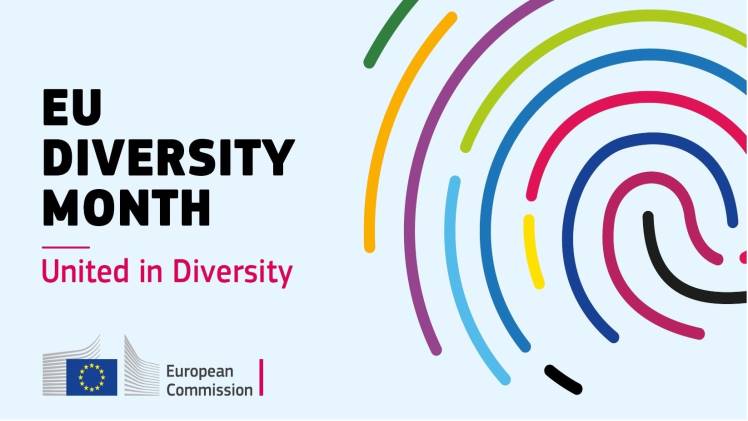EOR’s Role in Diversity and Inclusion Initiatives

In an increasingly interconnected world, diversity and inclusion have emerged as central pillars of successful organizations. Employers recognize that fostering a diverse and inclusive workforce not only enriches company culture but also drives innovation and enhances business outcomes. Professional Employer Organizations (EORs) play a pivotal role in helping businesses navigate the complexities of diversity and inclusion across borders. In this article, we explore how EORs contribute to creating a global culture of equality.
Understanding Diversity and Inclusion:
Diversity encompasses the range of characteristics that make individuals unique, including but not limited to ethnicity, gender, age, religion, sexual orientation, and disabilities. Inclusion, on the other hand, pertains to creating an environment where each individual feels valued, respected, and empowered to contribute their unique perspectives.
EORs as Enablers of Diversity and Inclusion by INS Global
EORs are uniquely positioned to support diversity and inclusion initiatives, especially for businesses with a global footprint. Here’s how EORs contribute:
**1. Cross-Cultural Expertise:**
Operating across borders exposes EORs to diverse cultural contexts and varying social norms. This exposure allows them to provide valuable insights into fostering inclusivity in different regions while respecting cultural sensitivities.
**2. Navigating Legal and Regulatory Complexities:**
Each country has its own laws and regulations regarding diversity and inclusion in the workplace. EORs possess the legal expertise required to ensure that businesses comply with these regulations while promoting inclusive practices.
**3. Talent Sourcing and Recruitment:**
EORs assist businesses in finding talent from diverse backgrounds, helping organizations tap into a broad range of skills and perspectives. This not only enhances creativity but also reflects a commitment to diversity in the workforce.
**4. Cultural Competency Training:**
EORs offer training programs that educate employees about cultural differences and promote respectful interactions. These initiatives foster a workplace culture where diversity is celebrated and inclusion is prioritized.
**5. Mitigating Bias in Hiring and Promotion:**
Unconscious biases can influence hiring and promotion decisions. EORs implement strategies to reduce bias in recruitment and advancement, ensuring that talent is evaluated fairly and equitably.
**6. Facilitating Language Accessibility:**
In global workplaces, language barriers can impede effective communication and collaboration. EORs assist in providing language accessibility solutions, ensuring that all employees can participate and contribute regardless of their language proficiency.
**7. Benefits and Employee Support:**
EORs can facilitate inclusive benefits programs that address the diverse needs of employees, such as family support, mental health services, and accommodations for disabilities.
**8. Handling Diversity-Related Challenges:**
EORs are equipped to manage diversity-related challenges that may arise, offering guidance on conflict resolution and ensuring that respectful and inclusive practices are maintained.
**9. Promoting Inclusive Policies:**
EORs can help businesses develop inclusive HR policies that promote equal opportunities, prevent discrimination, and create a welcoming environment for all employees.
Benefits of EOR’s Role in Diversity and Inclusion thanks to INS Global Consulting
Embracing diversity and inclusion through the partnership with EORs offers several advantages:
**1. Global Consistency:** EORs ensure that diversity and inclusion initiatives are implemented consistently across different locations, maintaining a unified approach to equality.
**2. Expertise in Cultural Nuances:** EORs’ understanding of cultural nuances enables businesses to navigate diverse landscapes sensitively, fostering collaboration and respect.
**3. Compliance and Risk Mitigation:** EORs help businesses stay compliant with local diversity and inclusion regulations, mitigating legal risks and potential reputational damage.
**4. Enhanced Reputation:** A commitment to diversity and inclusion not only attracts top talent but also enhances a company’s reputation as an employer of choice in the global market.
**5. Improved Performance:** Diverse teams are proven to drive innovation and achieve better business outcomes, making diversity and inclusion initiatives crucial for success.
Conclusion:
Embracing diversity and inclusion is no longer just a moral imperative; it’s a strategic advantage that contributes to organizational growth and resilience. EORs serve as vital partners in navigating the complex landscape of global diversity and inclusion initiatives. By leveraging their cross-cultural expertise, legal knowledge, and inclusive practices, EORs empower businesses to create an environment where every employee’s uniqueness is celebrated, voices are heard, and contributions are valued. As businesses strive for a brighter future built on equality, EORs play an indispensable role in turning that vision into a reality on a global scale.




